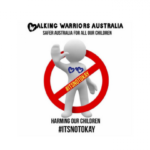The Stage Is Set to Pass a Human Rights Act and the Benefits Are Only Mounting

The Parliamentary Joint Committee on Human Rights recommended the Australian government pass a Human Rights Act in May this year, as part of its inquiry into the nation’s human rights framework, which means the stage is now set for federal Labor to pass laws that uphold the basic rights and responsibilities of all citizens and residents in this country.
The last time the path had been cleared for rights protections to be enacted at the national level, it was under the Rudd government, after the 2009 National Human Rights Consultation report called for the same – that Labor pass a HRA – however it didn’t prioritise this recommendation in quite the same manner as the current review has done. And then PM Rudd refused to enact one in 2010.
Australia is currently the only liberal democracy on the planet that hasn’t enacted national rights protections in law, which would further serve to ensure that laws and government policies don’t impinge upon basic freedoms, and the model that has been recommended by the PJCHR ensures that when the rights of individuals are infringed upon, there would be the ability to seek recourse.
The momentum for a HRA to be prioritised in parliament was already gaining traction when Dreyfus launched the inquiry in March 2023, as the Australian Human Rights Commission had just released its position paper on a HRA that called for a dialogue model, which involves the three branches of government – the executive, the legislature and the judiciary – all working together to uphold rights.
And as research just produced by Civil Liberties Australia (CLA) outlines, the AHRC preferred HRA also incorporated the no rights without remedy (NRWR) system, which is currently being implemented in the ACT, and provides the ability for citizens who have had their rights breached to undertake a conciliation process with an independent authority, which would be swift, convenient and affordable.
Ensuring rights-forward governance
“We know from countless surveys over decades that more than 70 percent of Australians want the federal government to bring in a Human Rights Act,” Civil Liberties Australia president Dr Kristine Klugman told Sydney Criminal Lawyers.
“So, we only need to convince a majority of politicians and a score of top bureaucrats that, not only is such an Act socially desirable and wanted, it will also save the nation possibly very large sums of money over time,” she added, hinting at recent research that confirms that a NRWR model would save the nation substantial funds, while the addition of a HRA would also benefit global relations.
The CLA research, which focuses on aspects of a HRA that weren’t the focus of the AHRC report, found that the NRWR model requires decisionmakers to take a proactive approach to protecting and promoting human rights, as well as providing a clear pathway for individuals with a rights complaint to raise it with an independent third-party authority, or if that fails, move on to the relevant tribunal.
CLA posits that rights can be considered as quality control standards in terms of good governance and their application in areas where it’s lacking then brings about a stable and sustainable society.
So, the conciliatory process ensures that government actors will pay greater attention to the upholding of rights in policy and practice or else they’ll end up with complaints made against them.
“If government bureaucrats get big national and small one-person decisions right more often, which is the quality assurance over government decision-making that a HRA leads to, then the cost to government for fixing errors of judgement largely disappears,” Dr Klugman makes clear.
Social and international benefits
“The upstream costs of establishing any HRA of the Australian HRA models has mostly been about instilling a new culture into government decision-making”, CLA explains, and the problem it considers with state and territory HRAs that don’t incorporate a NRWR conciliation process is that those now operating within its framework aren’t actively engaging with rights and issues relating to them.
But the establishment of third-party authority that’s able to deal with rights complaints in an expedited manner means that rights issues and avoiding being the subject of such complaints will be a consideration both for politicians, public service officials and the public, and the “cumulative effect” would be the “continuing critique” of government performance and rectifying of these issues.
In terms of how a HRA might be of benefit on the international stage, CLA considers that it would provide assurance to other nations that Australia upholds the rights of its citizens and residents and therefore, it is not a country other nations need to avoid being associated with, while it further makes other nations aware that they’re dealing with a principled government.
The rights organisation further highlights that Australia includes human rights clauses in its trade agreements, while western nations often link the practice of upholding rights to trade liberalisation. And while Australia does appear to be towing the line on human rights globally, when it comes to up-close direct dealings the nation can’t guarantee rights on the ground or expect others to.
But when it comes to the European Union, it approaches international trade through a human rights lens, which it applies on the ground for its citizens as well, and it’s in the best interests of companies looking to do business on the continent to demonstrate EU human rights compliance and this in turn has an influence in general, upon nations seeking trading partnerships.
So, as CLA outlines, passing a no rights without remedy model of HRA would guarantee civilian rights and that when there is an issue in relation to them, it could be rectified in a prompt manner under the proposed system, which would further mean that the costs of government fixing its own errors would largely disappear.
As Dr Klugman put it, right now, without rights protections the sorts of corrections politicians have to pay for often don’t cost too much taxpayer money, “say”, she said as an example, “just $1,000 to make sure a child doesn’t suffer from lifelong asthma because of the wrong carpet in the family’s allocated Housing Authority home”.
However, the liberties advocate also said in conclusion that it would further prevent those other more serious scenarios, where one individual government mistake can cost billions, like Robodebt, which cost Australia about $2 billion in cash, a number of lives and years of ongoing worry among hundreds of thousands of citizens, not to mention the expense of a yearlong Royal Commission.”







